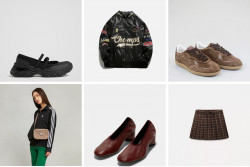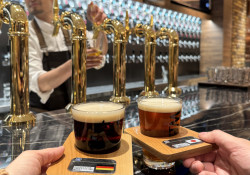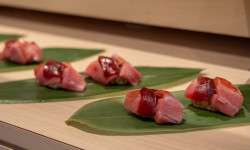
Originally published on metropolis.co.jp on June 2010

British pub The Nub sells 1 billionth pint, becomes official McDonald’s of beer
Thailand on Brink of Civil War; Japanese Fear for Rattan Furniture
As a wave of unrest sweeps the nation, Thailand is foremost in the minds of many Japanese. With protests reducing the country’s rattan furniture industry to a state of paralysis, serious doubts have emerged about the continued ability of Japanese hipsters to sit in trendy but uncomfortable chairs and sofas.
The loss of rattan furniture has yet to hit the end user, but industry analysts say it could be a devastating blow to neighborhoods such as Shimokitazawa, which rely on cheaply produced Thai products as a signifier of “trustafarian hippie-bohemian lifestyles.”
The future of floor-length hemp skirts and rings made from fake elephant ivory has also been thrown into doubt, as prime minister Abhisit Vejjajiva struggles to quell bloody sectarian violence.
Meanwhile, the Japanese government has stepped in to reassure consumers. “Furniture made from the bones of African albinos will guarantee you the same level of unnecessary cultural status,” said the Cabinet Office in a statement. However, other government sources privately admitted to The Negi that albino bones have been difficult to obtain, as they are apparently important in ritual African medicine.
Hair Stylist Joins Japan World Cup Team
By Paul Thompson
Help is on its way for Japan’s soccer players ahead of what promise to be some hair-raising encounters at the World Cup in South Africa.
Keen to avoid follicular damage during the campaign, the team has enlisted the help of Failure Corp., the men’s grooming giant, which is already hoping for a spike in sales of Samurai Blue diffusers and curling tongs to an expectant nation.
Failure marketing director E. Sakusen says the company is targeting the root of the problem by offering the squad its full range of products. Tests carried out in conditions simulating the South African winter delighted the players, who tightened up their defenses against split ends.
“The lads really enjoy training,” said captain Daisuke Mojamoja. “Yesterday we even got to try out a new gel.”
To boost their confidence ahead of set plays, team members will be able to use mirrors placed next to the water bottles on the touchline, where a Failure stylist will be on hand to issue instructions. “In one way, at least, the team will be head and shoulders above the opposition,” said Mojamoja.
Job Shortage Forces Graduates to Follow Dreams
Hit hard by the prolonged economic downturn, young men and women across the nation are resorting to a desperate option: following their dreams. The lack of corporate jobs has forced youngsters to forgo lucrative careers in finance and engineering in favor of playing guitar on the streets and writing plays.
“I had hoped to land a job with a large firm that does something,” one still-unemployed grad told The Negi. “I’d then meet a girl who did something in the same office, until she stopped doing something so I could marry her, and then she would raise my family until I stopped doing something too. But now I suppose I’ll just have to be a poet.”
Another prospective stock trader turned novelist told The Negi, “I never hoped to be like Natsume Soseki—beyond the fact that I’d possess loads of bills with his picture on them. Now, with a shortage of job options, I may have to produce haiku.”
Japan Pioneers New Dolphin-Based Biodiesel
In what has been described as “heeding a lesson from the past while looking to the future,” Japanese scientists and engineers are reviving the age-old practice of sourcing oil from the sea. While whale oil was for centuries used to light the lamps of the world, today’s pioneers plan to power biodiesel cars with dolphins.
The innovation is the work of engineering company Daiji Japan, developed in collaboration with car manufacturer Bonda. “Prometheus meets Poseidon, and we get a kick-ass six-cylinder engine that burns sea mammals,” said Bonda spokesperson Sakane Hayato at the launch of the company’s new eco car, dubbed the Dolph-Lungranade.
Independent observers have conceded that the car’s fuel efficiency rate, currently 190km/porpoise, is vastly superior to that of other biofuel sources like corn and sugar cane. Hayato was more to the point, proclaiming with a broad smile that “Flipper is faster than lightning.”
News in Brief
- Tokyo Women Unsure if Spring Trend is Six-Inch Belts or Dixieland Jazz Hats
- Asashoryu Actually Getting Fatter
- Kim Jong-Il to Meet With Legion of Doom
- Tokyo Named Host of Hairlympics
- Otoshi at Izakaya Made From Ex-Employee
- Survey Shows Saitamaites Walk 40% Slower Than the Average Human







